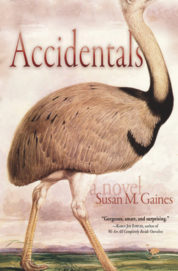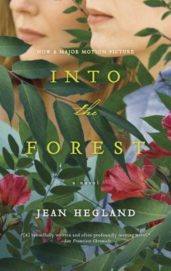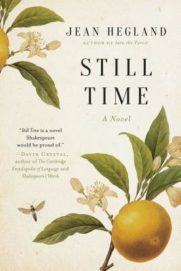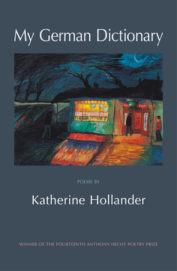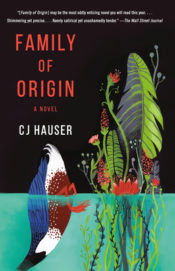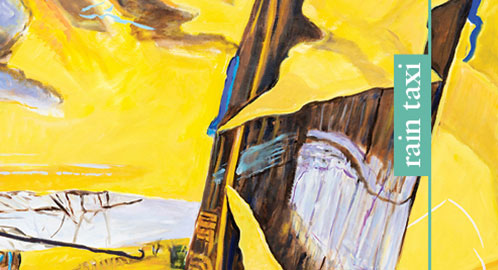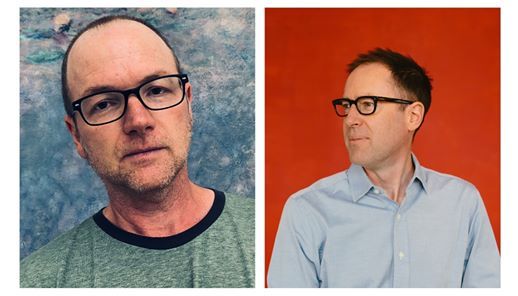 Editor’s Note: To celebrate the publication of Matthew Rohrer’s new book The Sky Contains the Plans (Wave Books, $16), Dobby Gibson and Matthew Rohrer were scheduled to converse in the Twin Cities this past April. With that event cancelled for obvious reasons, we asked them to have a conversation anyway, and what follows below is the result. We offer it to our readers as a testament to poetry and friendship in these troubled times. (Please note the conversation was conducted prior to the murder of George Floyd in Minneapolis.)
Editor’s Note: To celebrate the publication of Matthew Rohrer’s new book The Sky Contains the Plans (Wave Books, $16), Dobby Gibson and Matthew Rohrer were scheduled to converse in the Twin Cities this past April. With that event cancelled for obvious reasons, we asked them to have a conversation anyway, and what follows below is the result. We offer it to our readers as a testament to poetry and friendship in these troubled times. (Please note the conversation was conducted prior to the murder of George Floyd in Minneapolis.)
Matthew Rohrer is the author of several books and chapbooks, including The Others (Wave Books, 2017), which won the Believer Book Award, and A Hummock in the Malookas (Norton, 1995), selected for the National Poetry Series by Mary Oliver. He was one of the founders of the magazine Fence, and teaches in the writing program at New York University.
Dobby Gibson is the author of Polar (Alice James Books, 2004), which won the Beatrice Hawley Award, and three subsequent collections published by Graywolf Press, most recently Little Glass Planet ($16), named a Top Book for Spring 2019 by BuzzFeed. A recipient of fellowships from the Lannan Foundation, the McKnight Foundation, the Jerome Foundation, and the Minnesota State Arts Board, he lives and works in St. Paul, Minnesota.
Dobby Gibson: Hello to you, friend, from a socially distanced 1,201 miles. It’s hard to imagine you confined in New York City during this terrifying pandemic. Your poems are so full of walking around the city, and crowds and subways and ferries, and allowing your eye to wander out the window into the streets and sky. What’s life like for you under shelter-in-place?
Matthew Rohrer: Hi Dobby. It’s particularly bittersweet to be talking to you this way today, when I would have been on a plane on my way to see you, and do some readings for our books in your delightful city. Instead I am sitting on my couch, like millions of other people. And the truth is, I’m sure my experience is exactly like theirs too. And much better than many people’s. I’m very lucky to have enough food, and lots of boxes of wine, and a family that I actually like to spend time with. In terms of the poems—you know, I used to be a stay-at-home dad for five years, and figured out how to write without outside, outdoor stimulation. Maybe that seems odd to some people—aren’t poets just supposed to be in their garrets alone anyways?—but for me, I’ve always needed to or wanted to be out in the city, walking around, getting an electrical charge from the people, their speech, the energy of the city. So now we have a mourning dove nest on our fire escape and I call the mother Desiree, and I think about her a lot.
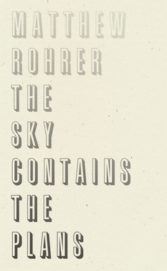 DG: This new book of yours is wild and wonderful, and like all of your books, so incredibly companionable. When I heard you read from it in New York City last month, I overheard someone leaving the event say to a friend, “I suddenly remember what it’s like to like poetry again.” It was such a wonderful compliment—but also so damning for the genre. It makes me wonder how you think about the relationship between poetry and pleasure. Why is it that so many people perceive poetry fails them in this regard?
DG: This new book of yours is wild and wonderful, and like all of your books, so incredibly companionable. When I heard you read from it in New York City last month, I overheard someone leaving the event say to a friend, “I suddenly remember what it’s like to like poetry again.” It was such a wonderful compliment—but also so damning for the genre. It makes me wonder how you think about the relationship between poetry and pleasure. Why is it that so many people perceive poetry fails them in this regard?
MR: Have you heard that talk that Williams gave where he says “If it ain’t a pleasure, it ain’t a poem?” There’s also an online thing where you can listen to him say that on endless loop for 10 hours. I imagine fleets of helicopters descending over every cultural hub in America, playing that from weather-proof speakers attached to their undercarriages. I also think people misunderstand this quote—it doesn’t mean poems have to be funny or silly. I think Etheridge Knight’s poems are a pleasure to read, and they’re not silly at all. I also want to suggest, Dobby, that a part of this comment was aimed at you; your reading that night was really filled with light and pleasure too. I think people, at least in that audience, were unused to hearing someone so disarmingly gentle and truly questioning. There’s a duende to your poems that outs other people’s bossy poems as the narrow-ass things they are.
DG: That’s very nice of you to say. Now I have to ask you this, perhaps the biggest question on anyone’s mind right now about you and your new book: Did you wear special pajamas while writing these hypnagogic poems?
MR: Like many people in America, I wear a new-ish species of pant known as “resting pants” or “lounging pants” that are remarkably cheap because they are made by slaves in factories far away.
I want to ask you a question now: We just read together at NYU, and were going to give a couple readings for our latest books, and I wondered if you think there’s anything different about reading now, especially on the road, as compared to when we were younger?
DG: Readings feel less important to me than when I was younger. But I don’t believe my feelings about the act itself have changed much. At the risk of revealing my Midwestern inferiority complex, when I read out of town—or in town—both of which are rare enough to be special occasions, I still assume I’m viewed as an unknown and possibly unworthy interloper, and that my only chance at survival is to gingerly disarm an audience predisposed to reject me. No one has any professional obligation to like my work, and I’m not going to dazzle anyone with an outsized stage presence, that’s for sure. I love and dread that feeling of sending a tiny poem machine into a strange room and discovering what material it can gather from the lunar surface.
Too much uproarious laughter or cheesy gasps or too many sounds of assent and I’ll become suspicious of my poem. Same too, of course, for anything met by polar silence. I suppose this gets back to the complicated relationship between poetry and pleasure.
I have this thought about poetry readings and your work, perhaps confirmed by the afterword to your book, that the high-wire word-by-word collaboration readings you did with Joshua Beckman back in 2001 were the moment you were bit by the radioactive spider. That changed forever the way your poems think and move, and even your relationship to the line. Is that fair or am I wildly overstating things in my resting pants?
MR: I think that sounds right. It didn’t really change my relationship to readings though—I still find them strange and uncomfortable. Also did you know I just figured out I have social anxiety? I realized this at age 48. It explains so much about me. But yes, those intensive couple years working non-stop with Joshua definitely changed almost everything about how I approach poems. And here’s a funny thing he taught me that sort of ties these two threads together: he used to go to a bi-monthly open mic reading in the deepest recesses of Staten Island, where no one there knew who he was at all, and he’d read only as a way to edit his poems. He’d read his poems aloud to people and like you were saying, too much of anything—assent, dissent, laughter, gasps—helped him understand what kind of editing the poem needed. Once he took a bunch of us there with Tomaž Šalamun and we all read to a room full of people who were very polite.
DG: A secret Staten Island open mic workout regimen sounds very Joshua. He’s like the Rick Rubin of American poetry to me. He’s a student of the inner game in ways I will never be, in all my impatience.
I have been cleaning out old drawers during quarantine, and I rediscovered a promotional flyer from one of my strangest poetry readings, which was a campaign event for a U.S. House candidate a long time ago. He asked a few artists to play music or read poems or whatever at this rah-rah thing, and I participated, even though he wouldn’t be representing my district, because he was a DFLer and I generally believed in his cause. I remember this wave of regret crashing over me on the drive home. Even though I read preexisting poems, I felt used. The whole thing felt absurdly extracurricular. It felt as if I allowed my art to be domesticated and brought to heel. I swore to myself I would never do such a thing again and I would try harder to protect poetry as the one part of myself that was truly free. I don’t know if that makes sense or if I sound like the Muppet Sam the Eagle.
MR: Of course it does! They have to be so free that even your friends might not like them. They have to be so free that you might not even like them. I’m reminded of that scene in Starship Troopers where the teacher tells Rico “Figuring things out for yourself is the only freedom anyone really has.” I think that’s partly true, and then there are your poems, where you can also be free, where you can try to demonstrate what real freedom might look like.
DG: It’s like that great C. D. Wright quote: “It is a function of poetry to locate those zones inside us that would be free and declare them so.” Here we are, subjected by this huckster racist autocrat, trapped inside amid a global pandemic: What else do we have to go on?
You have been reading the letters of Lew Welch. I’m interested in any poet who found a way to live outside of the academic world—I’m always looking for another model. It’s my understanding that Welch—who was the stepfather to 1980s rocker Huey Lewis!—in his days as an advertising copywriter, created the tagline “Raid Kills Bugs Dead,” which is so great. What can we learn from him?
MR: Isn’t that such a great line? RAID KILLS BUGS DEAD. It’s all accents. It’s like swearing at someone. I think Welch is an under-appreciated poetry hero and maybe what he has to teach us, besides the ability to be an incredible poet without having students tagging along after you, is that if you really want to be good, and if you just hole up and put in a ton of work, you’ll come out the other side good. It might also be that he teaches us that you can be surrounded by much more famous friends and secretly be better than them.
DG: Are you familiar with Brian Eno’s concept of “scenius.” It’s the idea that a localized cultural ecosystem is superior to individual creativity, and a network is superior to a hierarchy. It’s an idea I’ve seen embraced by tech bros, which makes me skeptical. But now I wonder about Lew Welch and San Francisco scenius versus genius. Or Etheridge Knight. He seems far more genius than scenius, but what would he be without the pool halls of Kentucky or the friendship of Gwendolyn Brooks? There’s something quaint about the idea of scenius now that we’re all so interconnected as to have formed a collective biohazard.
I heard the poet Sun Yung Shin once say that being a good poet means being a good ancestor. I like thinking about her words in different ways. One way I think about them: As poets especially, our “scene” isn’t restricted by time or place, or life or death. I feel as if I’m writing in conversation with Du Fu as much as I am you.
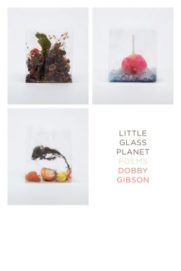 MR: I didn’t know about that Eno idea but it makes sense; it seems to explain Seattle in the ’90s, or even the Lake District in the 1790s. And I totally agree with “being a good ancestor”! I think poets who do not count among their contemporaries and friends the dead poets are pretty quickly outed as not really poets. Or maybe just outed as young poets, who have yet to figure that out. I wonder who you turn to when you need a poetry recharge, or maybe especially now that we are all frozen in time and worried and people are dying all around us and losing jobs and everything is so FUBAR. . . . Are there poets that help you with your brain? Are there poets that help you with your poetry? I’m curious because to me your poems are so very much YOU—they always feel so firmly planted in the present. But I wonder who you have hidden underneath them?
MR: I didn’t know about that Eno idea but it makes sense; it seems to explain Seattle in the ’90s, or even the Lake District in the 1790s. And I totally agree with “being a good ancestor”! I think poets who do not count among their contemporaries and friends the dead poets are pretty quickly outed as not really poets. Or maybe just outed as young poets, who have yet to figure that out. I wonder who you turn to when you need a poetry recharge, or maybe especially now that we are all frozen in time and worried and people are dying all around us and losing jobs and everything is so FUBAR. . . . Are there poets that help you with your brain? Are there poets that help you with your poetry? I’m curious because to me your poems are so very much YOU—they always feel so firmly planted in the present. But I wonder who you have hidden underneath them?
DG: Stevens and O’Hara for sure, but I rarely reach for their books, the poems are so in me. I tend to self-diagnose, Web MD-style. If I’m feeling unimaginative, maybe I grab an old Field Translation Series book, like Miroslav Holub or someone like that. If I’m feeling inattentive, it might be Issa or Adelia Prado. If I’m unmotivated, Eileen Myles or Terrance Hayes or Hopkins or someone with a real song. When I need to access even more of my Scandinavian pain—and how could that be anything but a really good idea—there’s Tranströmer or Malena Morling.
Here’s a great and forgotten book: False Prophet by Stan Rice. He was married to Anne Rice. The book picks up at Psalm 151 where the Bible left off. He wrote it on his deathbed.
Really, though, I’d much rather be infected by a poet or poem when my guard is down. It’s one of the only reasons I stay on Twitter: reading people’s screenshots of good poems, which I then save to my phone. But, good God, do I have to read a lot of garbage to be struck by one golden poem.
I like it when you send me a poem out of the blue. Will you tell me who you read when you need to remember the taste of poetry—and then will you send me a poem?
MR: Usually when I need to retreat, to freshen up, it’s because the Voice of Modernity has spread all around me like this vulgar little virus we have with us now. I have to, and want to, read a lot of contemporary poetry, and after awhile, and this might sound untrue, but there is a Contemporary Sound that permeates even the most disparate poets. There’s this texture of modernity that everyone just floats on and in, and despite the insanely great and impressive range of poetry right now, it begins to irk me, and I need to escape to a different diction. Today by the way is Wordsworth’s birthday, and I love his early work. Not the lame stuff. Just the good stuff. And Williams, honestly reading Williams is sometimes too humbling—have you read the poems in Spring and All recently? They’re completely up-to-date. And they make me wonder what I have to offer. They sort of make me feel terribly small and useless, and I think that’s a great feeling that not enough artists have; they all for the most part feel the exact opposite. I think the secret is to only read poets whose first and last names begin with W.
And perhaps not for this publication, but just to ease and calm you my friend, I find this observational poem by Shelley to be life-affirming in its exactness:
Evening, Ponte Al Mare, Pisa
1.
The sun is set; the swallows are asleep;
The bats are flitting fast in the gray air;
The slow soft toads out of damp corners creep,
And evening's breath, wandering here and there
Over the quivering surface of the stream,
Wakes not one ripple from its summer dream.
2.
There is no dew on the dry grass to-night,
Nor damp within the shadow of the trees;
The wind is intermitting, dry, and light;
And in the inconstant motion of the breeze
The dust and straws are driven up and down,
And whirled about the pavement of the town.
3.
Within the surface of the fleeting river
The wrinkled image of the city lay,
Immovably unquiet, and forever
It trembles, but it never fades away;
Go to the [East]
You, being changed, will find it then as now.
4.
The chasm in which the sun has sunk is shut
By darkest barriers of cinereous cloud,
Like mountain over mountain huddled — but
Growing and moving upwards in a crowd,
And over it a space of watery blue,
Which the keen evening star is shining through.
Click here to purchase The Sky Contains the Plans
at your local independent bookstore

Click here to purchase Little Glass Planet
at your local independent bookstore

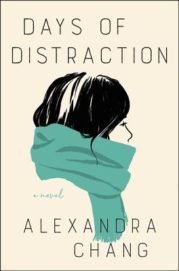 Alexandra Chang
Alexandra Chang
 Editor’s Note: To celebrate the publication of Matthew Rohrer’s new book The Sky Contains the Plans (
Editor’s Note: To celebrate the publication of Matthew Rohrer’s new book The Sky Contains the Plans (

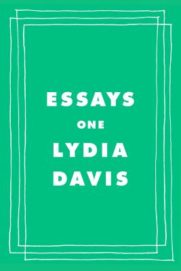
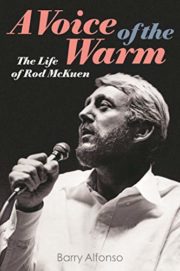
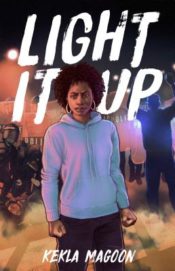
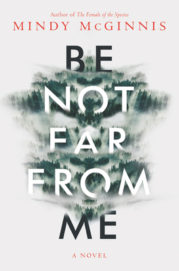
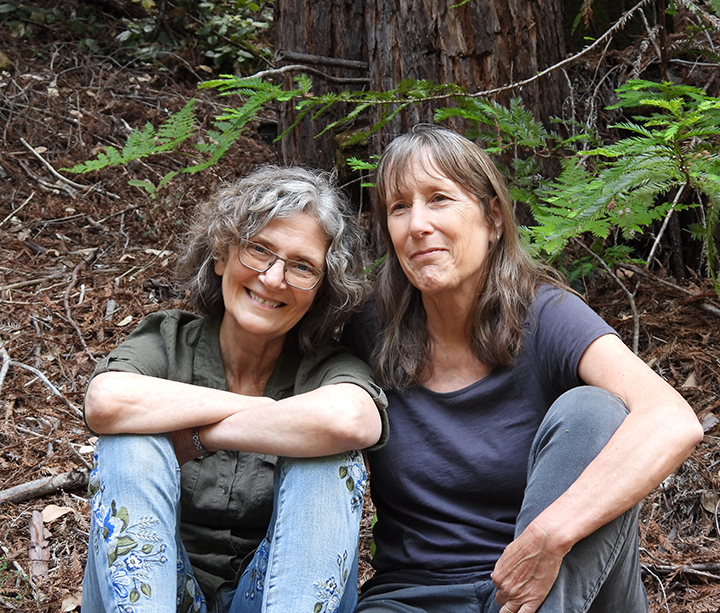 Novelists Susan M. Gaines and Jean Hegland have been exchanging and discussing drafts of their books for nearly thirty years. Earlier this year, they found themselves sheltering in place together in Jean and her husband’s northern California home. At the beginning of March, Susan traveled from Germany, where she has been living and working for many years, to the AWP Conference in San Antonio, the first stop in a book tour for her new novel, Accidentals (
Novelists Susan M. Gaines and Jean Hegland have been exchanging and discussing drafts of their books for nearly thirty years. Earlier this year, they found themselves sheltering in place together in Jean and her husband’s northern California home. At the beginning of March, Susan traveled from Germany, where she has been living and working for many years, to the AWP Conference in San Antonio, the first stop in a book tour for her new novel, Accidentals (